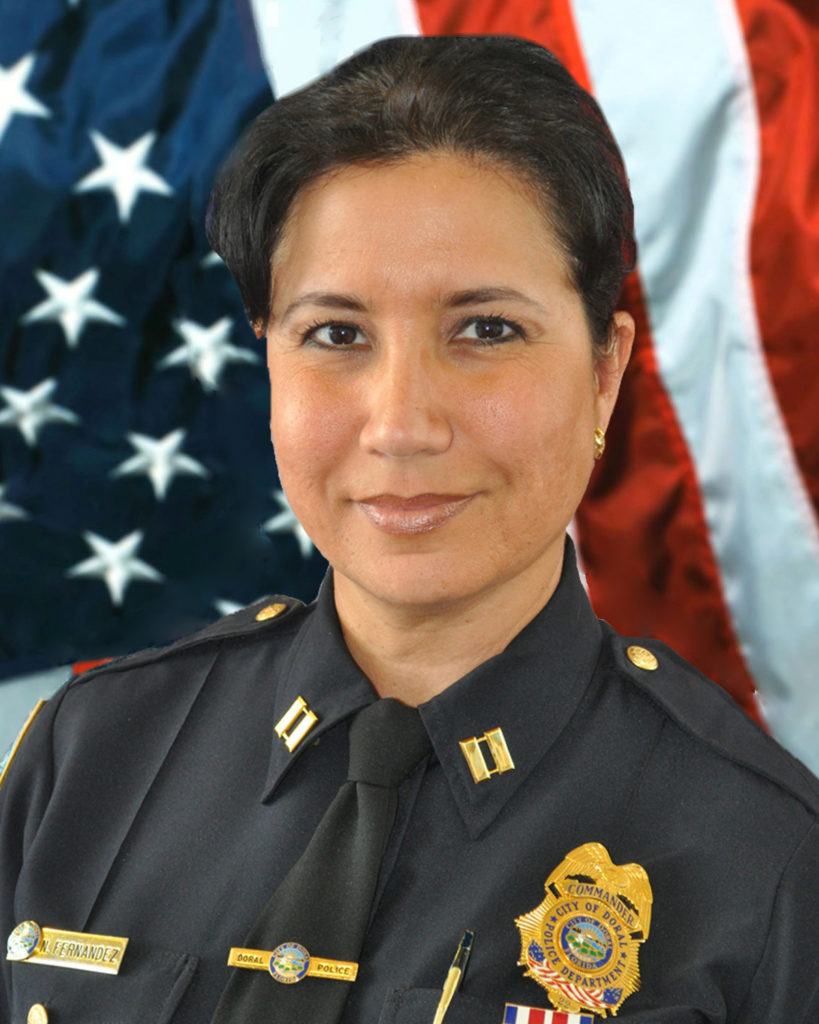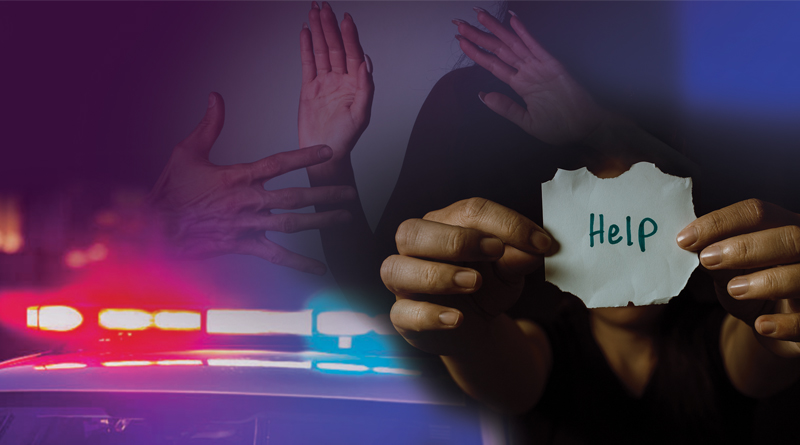Domestic violence cases increase in Doral
By: Diana Bello Aristizabal
We live in a violent society with people willing to hit someone or blast a firearm for the slightest offense. However, it’s more surprising that violence is also experienced behind closed doors, at residential homes, where people should find shelter from the hostile world surrounding us.
But this is not the case for many individuals and the problem seems to be increasing as it was reflected in the latest numbers from the Doral Police, according to which, from January to December 2022, there was a 39 percent increase at the local level in arrests for domestic violence compared to the same period in 2021. In addition, this year there was a 7 percent increase in domestic disturbances.
As defined by the Florida Department of Law Enforcement, domestic violence means any assault, aggravated assault, battery, aggravated battery, sexual assault or battery, stalking, aggravated stalking, kidnapping, false imprisonment, or any criminal offense resulting in physical injury or death of one family or household member by another one.
In this sense, domestic violence is not only limited to married couples, since the requirement to be classified as such is that the victim and the perpetrator of the crime are related by blood, marriage, due to living together as if a family in the same single dwelling unit or having done so in the past or because they have children in common.
Domestic disturbances, meanwhile, do not constitute a criminal offense. These are heated discussions between family members that are sometimes reported to the police but that don’t end up in anyone getting physically hurt.

“If you are suffering from any kind of physical, verbal or psychological abuse, you can approach the Doral Police to be guided on the resources you can access to. No one should stay trapped in a situation of abuse,” says Captain Fernandez, who adds that many times domestic disturbances end up turning into cases of domestic violence when help is not sought on time.
In this regard, it’s important to point out that the immigration status of the victim should not serve as an impediment to report a case of domestic violence in any police department of any city or town.
“We are not here to ask about your immigration status. Our approach is to help the victim of domestic violence regardless of whether they reside in the country legally or not, whether they are a tourist or a resident, or whether or not they hold a visa,” emphasizes Captain Fernandez of the Doral Police.
Another sequel of the pandemic
The increase in domestic violence cases began to take shape in 2020 with the arrival of the pandemic when families started to deal with economic, labor and mental health hardships. “Family dynamics changed radically and that brought with it lots of stress,” explains Captain Fernandez.
On the other hand, the national state of the economy with the increase in the cost of living has forced many families to share the roof with others and this has led to more friction.

For this reason, domestic violence is not only a growing problem in Doral but in the entire country. “Nationwide, the number of cases has increased to 8.1 percent since 2020,” says Dr.h.c. Rachel Tourgeman, President and CEO of ‘On Point with Rachel Tourgeman’, a digital platform that addresses, among others, this topic.
The also founder of Powerhouse Workshops, a company devoted to educating the community on anger management and effective non-violent communication, and someone who has spent many years fighting the scourge of domestic violence, states that currently 1 in 4 women are victims of domestic violence, while 1 in 9 men suffer from it. “This is an international public health problem.”
It is also a very serious crime that brings consequences at all levels for both the perpetrator, the victim and the minors involved and of which it’s imperative to educate the community to improve the statistics.
As for the perpetrator, in addition to having a criminal record, the individual must meet a series of requirements before being released and, sometimes, the charges are not dropped even if the victim wishes to do so.

“A lot of victims have been living in an abusive situation for an extended period of time, perhaps isolated from family and friends, financially controlled, and with low self-esteem. Because of all this, they don’t possess the ability to make decisions in their best interest, in which case prosecutors can determine to keep the charges in order to protect them,” explains Captain Leonel Ochoa of the Doral Police.
As for the consequences endured by the victims, they are more prone to suicide, depression, anxiety, and gynecological infections when the violence is of a sexual nature, among others that seriously compromise their physical, mental, and emotional health.
Children, for their part, even when they have not been the direct target of this crime, face long-term consequences after having witnessed violence within their households. “They are 10 times more likely to become abusers themselves when they grow up, with which we are creating a cycle of violence,” explains Dr. Tourgeman.
Strategies and resources
Stopping the cycle of domestic violence is a shared responsibility. To achieve this, according to Dr. Tourgeman, the most important thing is for each one of us to be educated on how to manage the emotion of anger and how to resolve conflicts through peaceful and assertive communication.
“There is a direct link between anger and domestic violence. If we learn to control this emotion, little by little we will see a reduction in this problem. However, this requires a concerted effort,” says the expert, who from Powerhouse offers workshops aimed at children, young adults and company employees to master this skill.
Her workshops are mainly focused on providing behavior modification strategies that culminate in the control of anger, an emotion that can work for or against the person who feels it depending on how it is channeled.
“The first step is to recognize the physical signs of it, such as an increase in blood pressure. Later you can learn to de-escalate it, which is done in different ways such as taking your mind to a place of calm or simply withdrawing from a situation before reacting, ” she explains.
The above are preventive strategies meant to help families maintain harmony at home. However, if you are a victim of domestic violence, seek help as soon as possible and have an escape plan.
You can call 305-547-0177 corresponding to the M.O.V.E.S (Mobile Operations Victim Emergency Services) program, which is open Monday through Friday from 5 p.m. to 5 a.m. and 24 hours a day on weekends and during holidays.
You can also contact the Miami-Dade County Department of Community Action and Human Services, the 24-hour Domestic Violence Hotline at 1-800-500-1119, or the Survivor’s Pathway organization at 786-275-4364.
Both victims and witnesses of domestic violence can call the Doral Police at 305-593-6699. The latter can do so anonymously if they wish, while victims can go to the station located at 6100 NW 99th Ave, Doral, FL 33178, if they consider it safer or more discreet.

